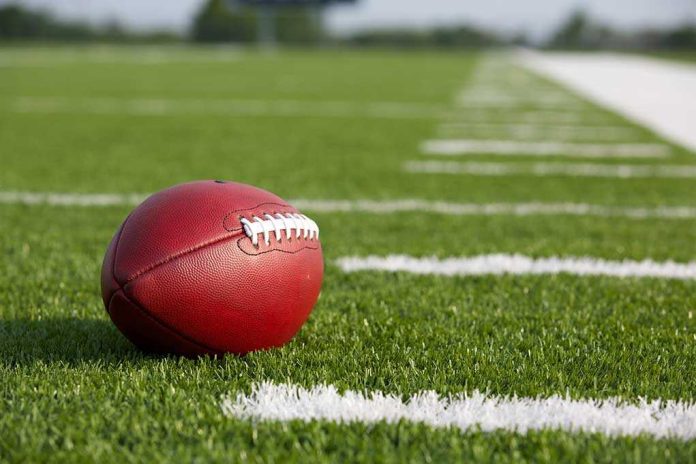
Allegations of meth-fueled assault and sexual misconduct against Houston Texans’ safety Jimmie Ward have rocked both the NFL and public trust in athlete accountability, fueling urgent questions about legal responsibility and the league’s response.
Story Snapshot
- Jimmie Ward faces a $20 million civil lawsuit alleging repeated physical and sexual assault, with claims of methamphetamine use during the incidents.
- Ward was arrested twice in 2025: first for domestic assault, then for violating bond conditions by contacting the alleged victim and consuming alcohol.
- The case raises broader concerns about NFL disciplinary policies and the handling of domestic violence involving high-profile athletes.
- Legal proceedings are ongoing, with both criminal and civil actions pending; the Texans and NFL have not issued disciplinary statements.
Serious Allegations and Legal Response
Jimmie Ward, a veteran NFL safety for the Houston Texans, is at the center of a civil lawsuit in Harris County, Texas, alleging that he physically and sexually assaulted the mother of his young son while under the influence of methamphetamine. The accusations include multiple episodes in 2025 where Ward allegedly slapped, choked, and threatened the woman, and forced her to perform a sex act, all reportedly while their child was present in the home. The lawsuit, filed on August 21, 2025, seeks $20 million in damages and comes on the heels of two separate arrests: one in June for domestic assault, and another in August for violating bond by contacting the alleged victim and drinking alcohol.
According to the filings, the incidents span several months in 2025, though not all dates have been fully disclosed. The criminal case stems from Ward’s June 12 arrest after allegedly entering the woman’s home and displaying erratic, aggressive behavior. In August, Ward was taken into custody again after reportedly breaking the terms of his bond, which prohibited both contact with the alleged victim and alcohol consumption. The legal proceedings now involve both criminal and civil courts, intensifying scrutiny on Ward, the Texans, and the NFL as a whole.
NFL’s History and Policy Under Scrutiny
The allegations against Ward come at a time when the NFL is under continued public pressure to address off-field misconduct among its players, particularly regarding domestic violence. The league’s history includes several high-profile cases—such as those involving Ray Rice and Greg Hardy—which led to increased penalties and changes in conduct policies. Despite these reforms, critics argue that disciplinary actions remain inconsistent, and organizations often prioritize public relations over meaningful accountability. The presence of a young child during the alleged assaults and the involvement of illegal drugs heighten concerns about player conduct and the adequacy of league oversight.
Ward’s status as a professional athlete with significant resources and public visibility complicates the legal process. The Houston Texans, as his employer, face reputational and operational risks, while the NFL must contend with renewed debates about its responsibility to enforce clear standards and protect victims. Team officials, such as head coach DeMeco Ryans, have emphasized the importance of due process and cautioned against rushing to judgment, yet the lack of a decisive statement from the league or the team leaves many questions unanswered within the community.
Impact on Stakeholders and Broader Community
The immediate effects of these allegations are substantial for all involved. Ward’s playing status with the Texans is uncertain pending the resolution of legal proceedings, threatening both his career and the team’s season. The plaintiff, seeking damages and protection, faces a highly publicized fight for justice and safety for herself and her child. The organization’s fanbase and the broader public are left grappling with the social and ethical implications of supporting teams and players under such scrutiny.
Financially, Ward faces significant risk if found liable in civil court, with broader repercussions for the Texans and the NFL’s reputation. The case may also prompt further policy reform and could influence how professional sports leagues address both substance abuse and domestic violence in the future. Domestic violence advocates and legal experts alike point to the need for robust support systems for victims and transparent, consistent responses from sports organizations. Meanwhile, the ongoing proceedings serve as a reminder of the importance of due process, even amid intense public attention and calls for accountability.
The ongoing investigation and legal actions will continue to test the resolve and values of all involved, highlighting the tension between the presumption of innocence and the urgent need to address domestic violence and drug abuse in professional sports.



